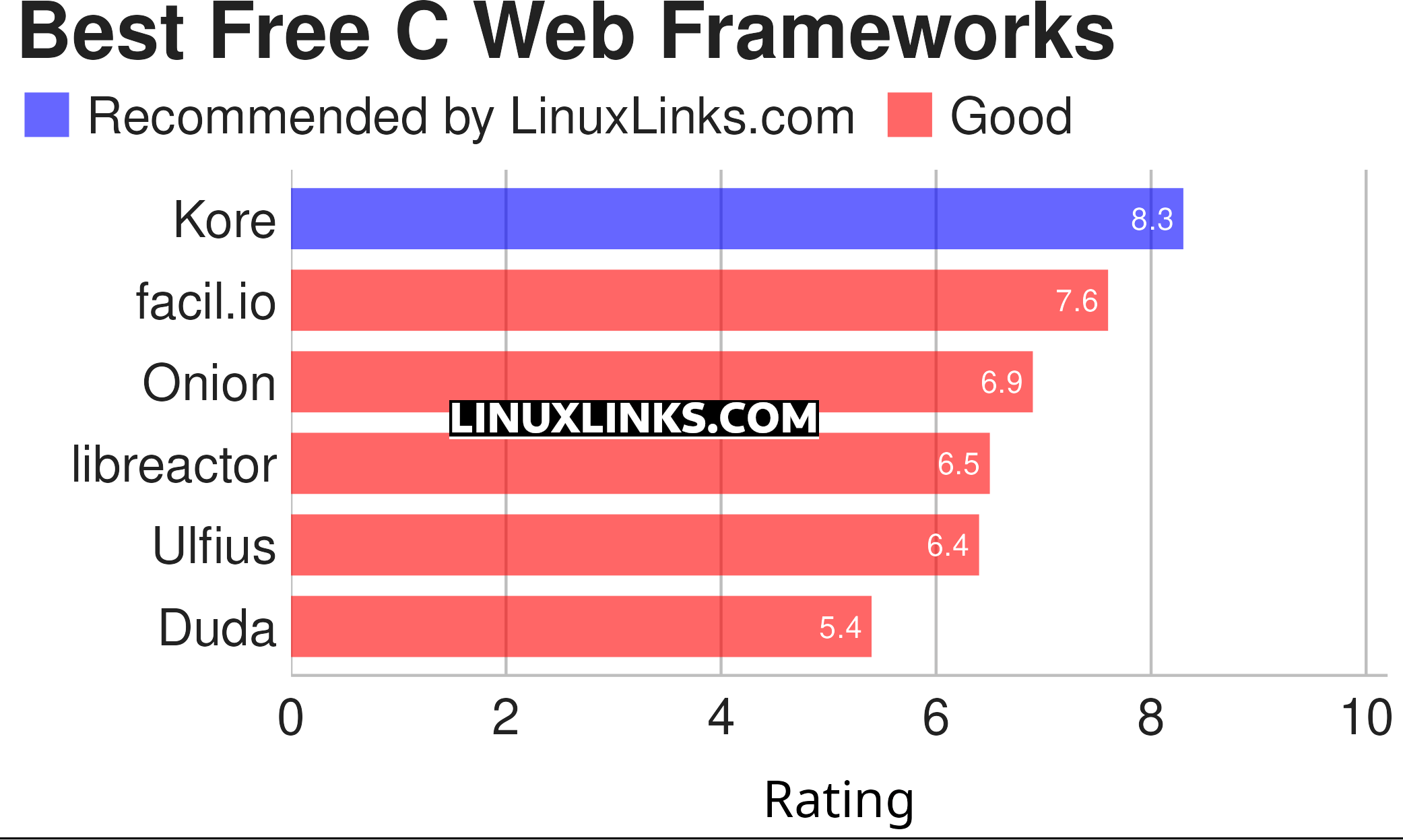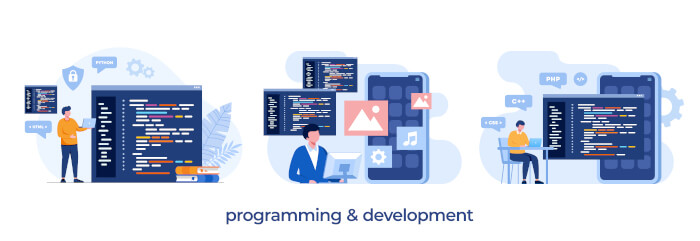One of the types of software that’s important for a web developer is the web framework. A framework “is a code library that makes a developer’s life easier when building reliable, scalable, and maintainable web applications” by providing reusable code or extensions for common operations. By saving development time, developers can concentrate on application logic rather than mundane elements.
A web framework offers the developer a choice about how to solve a specific problem. By using a framework, a developer lets the framework control portions of their application. While it’s perfectly possible to code a web application without using a framework, it’s more practical to use one.
C is a general-purpose, procedural, portable, high-level programming language that is one of the most popular and influential languages. It was designed to be compiled using a straightforward compiler, to provide low-level access to memory, to provide language constructs that map efficiently to machine instructions, and to require minimal run-time support. Many programming languages owe a considerable debt to C. It has become something of the lingua franca in the programming world.
Here’s our verdict captured in a LinuxLinks-style chart. Only free and open source software is eligible for inclusion.

Let’s explore the 6 C web frameworks. For each program we have compiled its own portal page, a full description with an in-depth analysis of its features, together with links to relevant resources. Click the links in the table below to learn more about each framework.
| C Web Frameworks | |
|---|---|
| Kore | Secure web application framework for writing web APIs in C or Python |
| facil.io | High performance web application C framework |
| Onion | Library to create simple HTTP servers and web applications |
| libreactor | Extendable event driven high performance C-abstractions |
| Ulfius | HTTP Framework for REST Applications in C |
| Duda | Event-driven and high performant web services framework |
This article has been revamped in line with our recent announcement.
 Read our complete collection of recommended free and open source software. Our curated compilation covers all categories of software. Read our complete collection of recommended free and open source software. Our curated compilation covers all categories of software. Spotted a useful open source Linux program not covered on our site? Please let us know by completing this form. The software collection forms part of our series of informative articles for Linux enthusiasts. There are hundreds of in-depth reviews, open source alternatives to proprietary software from large corporations like Google, Microsoft, Apple, Adobe, IBM, Cisco, Oracle, and Autodesk. There are also fun things to try, hardware, free programming books and tutorials, and much more. |

You’ve forgotten Vely.
I don’t think Eilidih ‘forgot’ about the framework in question although I’ve not spoken to her about it (as she’s away). From my personal perspective, I had never heard of Vely. Thanks for the heads-up.
I’m sure Eilidih will take a look at it at some point.
I’m not keen that the author doesn’t accept code contributions though, seems a little short-sighted.
And don’t forget, our series of software isn’t designed to include every open source project. Many of them fall into one or more of the categories:
– Abandoned software (although these are not automatically excluded)
– In an early stage of development
– Flawed in some way
Many open source projects don’t warrant inclusion. We focus on the cream!
Thanks for your suggestion Dan
It’s always helpful to explain why you think a specific open source project should be included. For example, why is it better than the projects already covered by Eilidih? What makes it worthy of recommendation? Do you use it on a daily basis? If so, why?
Hey there, sorry for the late reply, I didn’t actually expect anyone to respond. I do use Vely for an internal software project at work. It’s a medium size logistics app for real-estate agents, contractors, employees and also monitoring devices.
We use it because it’s almost like writing bash code but for the actual application development. So very easy. Though at first very weird, unlike anything else. We used Python before, but this is easier. And as I said, it’s logistics, so many mobile devices ping it all the time, and performance is something we struggled with. Vely excels in performance, being pure C underneath and with FastCGI in front. Out of your frameworks here, tried Kore, too complex, it’s more of an add-on for Python if you want to optimize, and less of a general-purpose framework.
Vely is more declarative, really writing bash code is my best analogy (since that’s my background, with some Java). It’s like a mix of no-code and simple C, if that makes sense.
I can’t comment on viability of any of these projects really, I’ve seen projects come and go and there’s nothing in any of them (including Vely) that tells me they will last or be abandoned one day. We took a chance here. HTH.
I second Vely. Easy to work with as it generates the code for you. Functionally rich, much like PHP, but way faster and smaller.